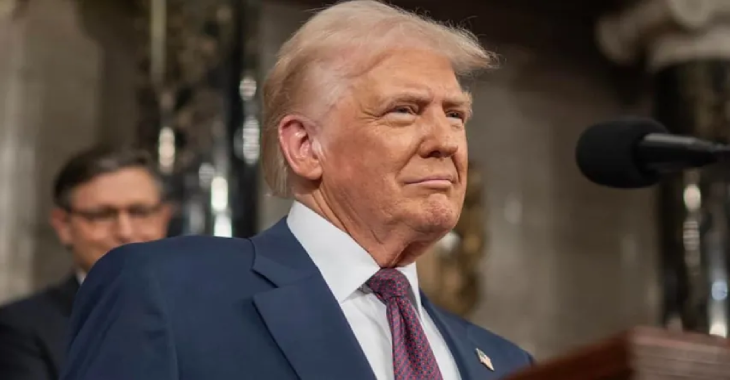Within hours, US President Donald Trump retracted his assertions that he had “stopped” the conflict between India and Pakistan and instead credited “two very smart people, (who) decided not to keep going with that war that could have been a nuclear” without claiming any role as a mediator.
Trump said he wanted to thank Asim Munir, the visiting Pakistan Army Chief, and Prime Minister Narendra Modi for bringing the hostilities to an end last month after they had lunch together on Wednesday.
Without restating his prior boasts of “stopping the war” and giving credit to both sides for the truce, Trump said, “I’m so happy there was a deal that two smart people, plus people on their staff too” worked out to halt the fight.
“Two smart people, two very smart people, decided not to keep going with that war that could have been a nuclear” one, he stated.
The statement goes, “Well, those are two nuclear powers, big ones, big, big nuclear powers, and they decided that” in order to end the conflict.
Speaking to reporters at the Oval Office, where Trump was meeting with Juventus Football Club players, that was at approximately three o’clock in the afternoon.
He had told reporters just five hours before that “I stopped the war between Pakistan and India.”
Around ten in the morning, he was with reporters as they saw a 30-meter-tall flagpole being put on the White House lawn, and he kept saying, “I got it stopped.”
He also bemoaned the fact that he was not given credit for his contribution to the war’s conclusion.
India has insisted that, contrary to Trump’s assertions, there was no US mediation.
Tuesday evening over the phone with Trump.
According to a readout of the call from the External Affairs Ministry, Prime Minister Narendra Modi reminded the US President so clearly, pointing out that Pakistan had started the negotiations to halt the war.
According to the Ministry, PM Modi told Trump, “Pakistan was forced to request a cessation of military operations due to India’s firm action.”
According to the readout, he also informed him that India would never consent to any third-party mediation in the dispute with Pakistan.
“I wanted to thank him for not going into the war, just ending the war” between India and Pakistan, Trump said after his lunch with Munir on Wednesday.
“This man was extremely influential in stopping it from the Pakistan side, PM Modi from the India side, and others.”
“And I want to thank, as you know, Prime Minister Narendra Modi,” Trump said in a clumsy attempt to be impartial, claiming to have spoken with the prime minister a short time prior.
“And we’re working a trade deal with India,” he stated.
Trump claimed to have spoken “better than most” with Munir about Iran.
Iran’s interests in the US, which does not have diplomatic ties with it, are represented by Pakistan’s Embassy in Washington (Switzerland handles US diplomatic contacts in Tehran).
The terms and repercussions of Trump’s vague call for Iran to “surrender” are still unclear.
Trump attempted to downplay the distinctions between Pakistan, a fierce ally of Iran that has denounced Israel’s attacks on Tehran’s nuclear facilities, and the US, which is a major friend of Israel.
“They (Pakistan) are not happy about anything,” Trump stated.
“They are not antagonistic against Israel. They are aware of Iran, but it’s likely that they have a deeper understanding of it.
By hosting Munir, Trump acknowledges the military’s dominance in Pakistan, which maintains a façade of democracy with a civilian administration answerable to the Army.
Washington first spoke with Pakistani Prime Minister Shehbaz Sharif during Operation Sindoor, but after realizing where the power was, it turned to Munir.
The fact that Trump has no trouble working with the military and non-democratic leaders, in contrast to Democratic Party administrations, is shown by the invitation to Munir.
Read More
Following the conclusion of his successful three-nation tour, PM Modi leaves for New Delhi
PM Modi participates in the energy security outreach session at the G7 Summit


